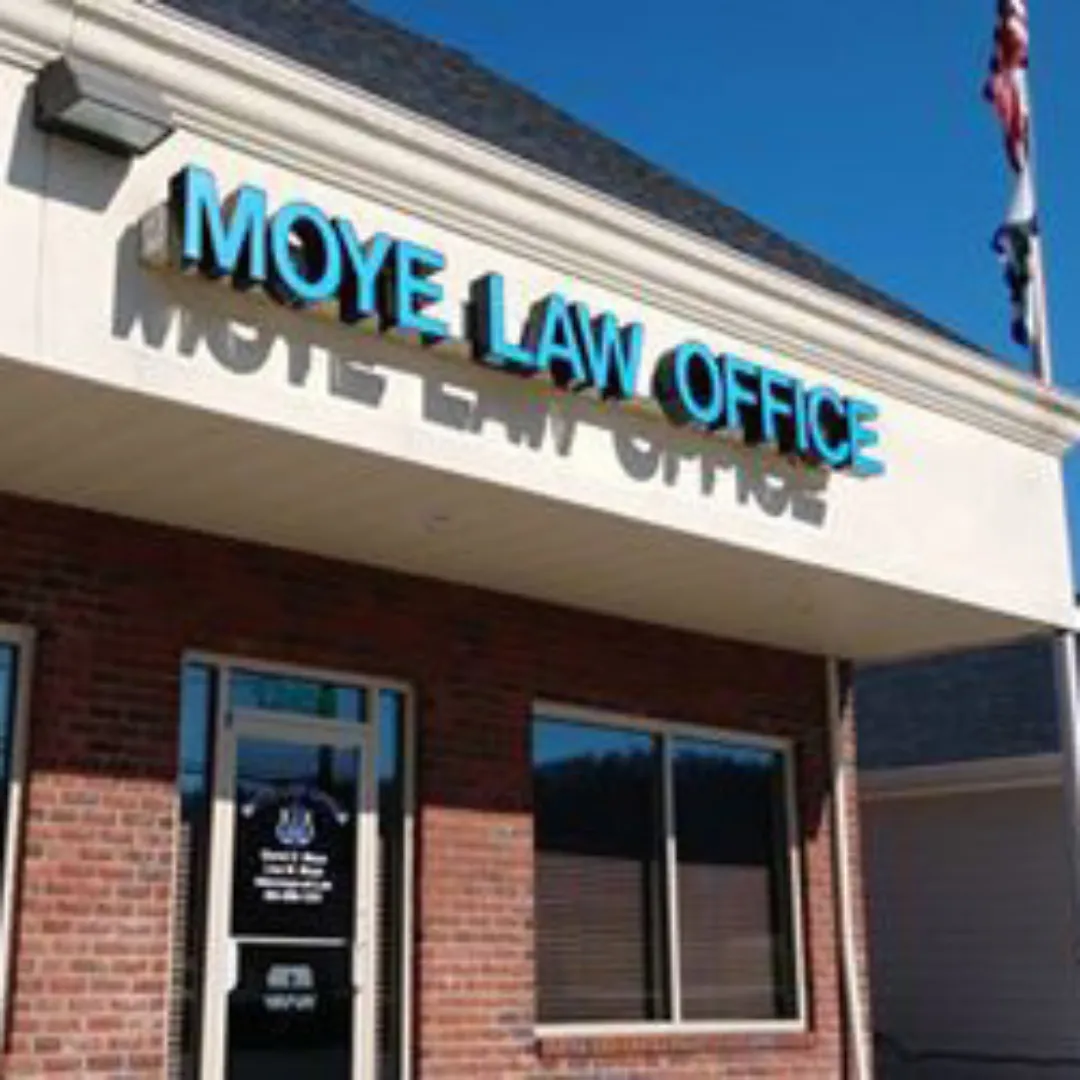
Blog
Blog
Key Factors to Evaluate When Choosing the Right Personal Inj..

Key factors to evaluate when choosing the right personal injury attorney for your case
Selecting the right personal injury lawyer can make or break your injury case. After an accident—whether a car crash, slip and fall, motorcycle accident, or dog bite—the stress of managing medical care, negotiating with insurance companies, and facing legal decisions can feel overwhelming. Your choice of law firm determines how well your rights are protected, how strong your evidence is presented, and ultimately, how much financial compensation you may receive in a settlement or verdict.
This guide will walk you through how to choose a personal injury lawyer who understands the complexities of tort law, provides ethical legal advocacy, and delivers results—whether your personal injury claim involves negligence, product liability, wrongful death claims, or premises liability.
1. Know the type of injury case you're dealing with
Different injury cases require different legal strategies. An experienced attorney will know how to handle:
Motor vehicle accidents (car, truck, motorcycle, bus, or bicycle)
Premises liability (such as slip and falls or negligent security)
Medical malpractice or nursing home abuse
Product liability or mass tort claims
Intentional torts such as assault or domestic violence
Wrongful death cases
Understanding your specific situation helps you find the best lawyer for the job.
2. Evaluate experience and specialization
Look for a personal injury attorney with deep experience in your type of case. A solid background in personal injury litigation, a history of jury trials, and success with personal injury settlements show competence. The best lawyers will:
Understand liability insurance and how to challenge insurance policy limits
Work with expert witnesses and manage medical record reviews
Navigate comparative negligence laws
Handle depositions, discovery, and alternative dispute resolution when needed
Review peer reviews, bar association credentials, and case histories on platforms like Avvo and local bar directories.
3. Reputation and client trust
Ask around. Look for:
Online reviews and lawyer referral services
Past client testimonials
Recognition from reputable legal associations (such as board certification, trial lawyer organizations, or the American Bar Association)
A trusted defender with a reputation for ethics, compassion, and client-centered advocacy is often the best fit.
4. Communication style and responsiveness
After an injury, clear communication is everything. You should expect:
Timely responses via telephone or email
Access to the attorney, not just a paralegal
A clear explanation of your rights, duties, and expected outcomes
Empathetic attention to your emotional and physical suffering
Choose an advocate who listens and takes time to understand your injuries, pain, and stress.
5. Understand the fee structure
Most personal injury lawyers operate on a contingent fee basis. That means:
You pay nothing unless the lawyer wins your case
The fee is typically a percentage (e.g., 33%-40%) of your settlement or court award
Ask for a retainer agreement that explains fees clearly. Also, confirm whether the attorney fronts expense costs (like expert testimony or court filing fees).
6. Ask smart questions during your consultation
Here’s how to choose a personal injury lawyer using smart questions:
What’s your experience with cases like mine?
Who will actually handle my case day-to-day?
What’s your trial experience, and have you won punitive damages or high-value settlements?
How do you approach negotiation with insurance companies?
What is your plan if the defendant refuses to settle?
7. Watch for red flags
Be cautious of:
Lawyers who guarantee a specific verdict or settlement
Pressure to sign without reading a retainer agreement
Vague answers about past lawsuits or practice areas
An ethical attorney will be transparent about your chances and the legal process.
8. The value of local knowledge
A local law firm brings:
Familiarity with area courts, judges, and jury expectations
Knowledge of regional statutes of limitations and standard of care
Faster access to witnesses, investigators, and local health care experts
Whether your accident happened in Illinois, Tennessee, New Jersey, or Georgia, a local lawyer with courtroom experience is a major advantage.
Final thoughts
Choosing the best personal injury lawyer isn’t about flashy advertising—it’s about trust, experience, and legal skill. With the right attorney by your side, you’re more likely to receive just compensation, hold negligent parties accountable, and move forward with dignity.
If you or someone you love is dealing with injuries from an auto accident, motorcycle crash, nursing home negligence, or product defect, don’t delay. Use this guide as a roadmap to select the right legal partner and secure the advocacy you deserve.
Would you like a social media caption, page title, or downloadable checklist to accompany this post?
Moye Law Offices
We have two offices in West Virginia: Winfield and Cross Lanes.

CROSS LANES
Key Factors to Evaluate When Choosing the Right Personal Inj..

Key factors to evaluate when choosing the right personal injury attorney for your case
Selecting the right personal injury lawyer can make or break your injury case. After an accident—whether a car crash, slip and fall, motorcycle accident, or dog bite—the stress of managing medical care, negotiating with insurance companies, and facing legal decisions can feel overwhelming. Your choice of law firm determines how well your rights are protected, how strong your evidence is presented, and ultimately, how much financial compensation you may receive in a settlement or verdict.
This guide will walk you through how to choose a personal injury lawyer who understands the complexities of tort law, provides ethical legal advocacy, and delivers results—whether your personal injury claim involves negligence, product liability, wrongful death claims, or premises liability.
1. Know the type of injury case you're dealing with
Different injury cases require different legal strategies. An experienced attorney will know how to handle:
Motor vehicle accidents (car, truck, motorcycle, bus, or bicycle)
Premises liability (such as slip and falls or negligent security)
Medical malpractice or nursing home abuse
Product liability or mass tort claims
Intentional torts such as assault or domestic violence
Wrongful death cases
Understanding your specific situation helps you find the best lawyer for the job.
2. Evaluate experience and specialization
Look for a personal injury attorney with deep experience in your type of case. A solid background in personal injury litigation, a history of jury trials, and success with personal injury settlements show competence. The best lawyers will:
Understand liability insurance and how to challenge insurance policy limits
Work with expert witnesses and manage medical record reviews
Navigate comparative negligence laws
Handle depositions, discovery, and alternative dispute resolution when needed
Review peer reviews, bar association credentials, and case histories on platforms like Avvo and local bar directories.
3. Reputation and client trust
Ask around. Look for:
Online reviews and lawyer referral services
Past client testimonials
Recognition from reputable legal associations (such as board certification, trial lawyer organizations, or the American Bar Association)
A trusted defender with a reputation for ethics, compassion, and client-centered advocacy is often the best fit.
4. Communication style and responsiveness
After an injury, clear communication is everything. You should expect:
Timely responses via telephone or email
Access to the attorney, not just a paralegal
A clear explanation of your rights, duties, and expected outcomes
Empathetic attention to your emotional and physical suffering
Choose an advocate who listens and takes time to understand your injuries, pain, and stress.
5. Understand the fee structure
Most personal injury lawyers operate on a contingent fee basis. That means:
You pay nothing unless the lawyer wins your case
The fee is typically a percentage (e.g., 33%-40%) of your settlement or court award
Ask for a retainer agreement that explains fees clearly. Also, confirm whether the attorney fronts expense costs (like expert testimony or court filing fees).
6. Ask smart questions during your consultation
Here’s how to choose a personal injury lawyer using smart questions:
What’s your experience with cases like mine?
Who will actually handle my case day-to-day?
What’s your trial experience, and have you won punitive damages or high-value settlements?
How do you approach negotiation with insurance companies?
What is your plan if the defendant refuses to settle?
7. Watch for red flags
Be cautious of:
Lawyers who guarantee a specific verdict or settlement
Pressure to sign without reading a retainer agreement
Vague answers about past lawsuits or practice areas
An ethical attorney will be transparent about your chances and the legal process.
8. The value of local knowledge
A local law firm brings:
Familiarity with area courts, judges, and jury expectations
Knowledge of regional statutes of limitations and standard of care
Faster access to witnesses, investigators, and local health care experts
Whether your accident happened in Illinois, Tennessee, New Jersey, or Georgia, a local lawyer with courtroom experience is a major advantage.
Final thoughts
Choosing the best personal injury lawyer isn’t about flashy advertising—it’s about trust, experience, and legal skill. With the right attorney by your side, you’re more likely to receive just compensation, hold negligent parties accountable, and move forward with dignity.
If you or someone you love is dealing with injuries from an auto accident, motorcycle crash, nursing home negligence, or product defect, don’t delay. Use this guide as a roadmap to select the right legal partner and secure the advocacy you deserve.
Would you like a social media caption, page title, or downloadable checklist to accompany this post?
Moye Law Offices
We have two offices in West Virginia:
Winfield and Cross Lanes.

CROSS LANES
We Are Here To Help
Do you have a query or problem that you would like to talk about, or are you curious to hear more about how we can help you?
Get in touch today! We look forward to hearing from you.
Assistance Hours
Monday – Friday: 8:30am – 4:30pm
Saturday: By appointment only
Sunday: CLOSED
Subscribe to our Newsletter
We Are Here To Help
Do you have a query or problem that you would like to talk about, or are you curious to hear more about how we can help you?
Get in touch today! We look forward to hearing from you.
Assistance Hours
Monday – Friday 8:30am – 4:30pm
Saturday: By appointment only
Sunday CLOSED

